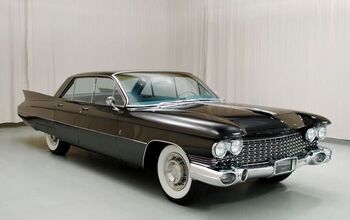Old Dealers Indignant Over FCA's Plan to Expand Network by 380 Stores

Fiat Chrysler Automobiles wants to grow its dealer network by 380 new stores in a bid to improve its dwindling market share. The plan isn’t going over so well with the company’s existing dealers, however. As the strategy could potentially threaten their present businesses, some of those dealerships are putting up a fight over the issue.
The choice to expand comes at a difficult time. Sales locations aren’t doing the best and suffering through a diluted and unpopular product lineup while the automaker shifts its focus away from cars to the more-popular SUVS and trucks. FCA sales have been on the decline for almost six months and the company’s slice of the U.S. market fell to 12 percent in the fourth quarter of 2016, compared to 13.6 percent in the same period of 2015. The expansion decision also goes against the advice of FCA’s dealership location consultant, Urban Science.
Automotive News claims the expansion plan was confirmed by two separate dealers, while a company source verified that Urban Science data doesn’t support the creation of new dealerships.
Some existing dealers have gone so far as to complain to state authorities. Two dealers cited a proposed lot in Kenner, Louisiana that would be situated near three existing FCA dealerships and isolated by a large swamp on one side and a lake on the other. Accessible sides of the planned Kenner dealership would be less than five miles from current dealers.
While a complete list of the 380 proposed locations is not available, dealers have told Automotive News of some specific areas, including the Kenner site near New Orleans and three in metropolitan Houston. Other proposed dealerships target suburban and metropolitan areas across the country.

A staunch consumer advocate tracking industry trends and regulation. Before joining TTAC, Matt spent a decade working for marketing and research firms based in NYC. Clients included several of the world’s largest automakers, global tire brands, and aftermarket part suppliers. Dissatisfied with the corporate world and resentful of having to wear suits everyday, he pivoted to writing about cars. Since then, that man has become an ardent supporter of the right-to-repair movement, been interviewed on the auto industry by national radio broadcasts, driven more rental cars than anyone ever should, participated in amateur rallying events, and received the requisite minimum training as sanctioned by the SCCA. Handy with a wrench, Matt grew up surrounded by Detroit auto workers and managed to get a pizza delivery job before he was legally eligible. He later found himself driving box trucks through Manhattan, guaranteeing future sympathy for actual truckers. He continues to conduct research pertaining to the automotive sector as an independent contractor and has since moved back to his native Michigan, closer to where the cars are born. A contrarian, Matt claims to prefer understeer — stating that front and all-wheel drive vehicles cater best to his driving style.
More by Matt Posky
Latest Car Reviews
Read moreLatest Product Reviews
Read moreRecent Comments
- ToolGuy I read in TTAC that EVs are useless and dead, just sayin.
- ToolGuy I am starting to question the love for our planet expressed by the oligopolists. Have I been lied to?
- NigelShiftright My favorite color on any current car is the "McLaren orange" on Subaru Crosstreks. Unfortunately I am about four inches too tall to fit behind the wheel of one.
- Bd2 This should solve some of those awkward styling elements on the first EV6 and in doing so only 3 years into the product cycle will also be increasing it's collectible value at future Barret Jackson auctions . A youtuber I follow does expect the Kia EV6 to be among the pioneers of collectible electric cars. I recently traced my 1997 Toyota Supra Turbo for a Kia EV9.
- Redapple2 HK makes rubbish. Spend 10% more. Get 25 % better.


































Comments
Join the conversation
Are any of these Alfa dealers ? Weren't those promised to the guys who built Fiat stand-alones for one car ?
Love the photo